2010-Press Releases
IBFAN Media Release
RECALL OF SIMILAC FORMULA CONTAMINATED BY BEETLES
The recall of about 5 million units of Similac by Abbott Laboratories is the latest in a long series of withdrawals of baby feeding products. It is not uncommon for powdered infant and follow-on formulas to be contaminated by bacteria, chemicals, insect parts and other foreign bodies.
The International Baby Food Action Network, IBFAN, has compiled lists of recalls of tainted baby formulas in powder form (1).
IBFAN expresses solidarity with the parents and carers of babies affected by these tainted products. Parents in the USA have filed a class action accusing Abbott of misrepresentation and deception (2). But class action is not an option for many parents who lack the time and money for legal procedures, or do not have any access to information about problems of contamination.
All parents should therefore know that powdered infant and follow on formulas are not sterile products. Manufacturers fail to provide such warnings and instead make claims that their products are safe and hi-tech: even the name “Abbott Laboratories” suggests a clinical setting.
However, baby milk formulas are not manufactured in laboratories, but in factories. Even unopened cans of formulas may contain small amounts of harmful bacteria or insects found in factories. Once a powdered formula is made up with warm water, the milk is fertile ground for bacterial growth.
Parents who use powdered formulas have the right to be informed of the possible risks involved, and how to reduce them. The World Health Organization, WHO, has produced Guidelines on safe preparation (3) which state:
“Powdered infant formula (PIF) has been associated with serious illness and death in infants due to infections with Enterobacter sakazakii. During production, PIF can become contaminated with harmful bacteria, such as Enterobacter sakazakii and Salmonella enterica. This is because, using current manufacturing technology, it is not feasible to produce sterile PIF”.
WHO recommends a key step to decontaminate the powdered formulas: first boil the water and then cool to no less than 70°C to mix with the formula, and then further cool to body temperature to feed your baby. This “lethal step” is necessary to kill or inactivate any bacteria that may be present in the powdered formula.
However, even careful preparation of powdered milk formulas does not guarantee the safety of these products in regard to other contaminants such as insects, melamine or other chemicals.
Babies and young children are vulnerable to infection because their immune systems are not yet mature. Powdered formulas do not contain live cells that are anti-infective agents and provide antibodies, as breastmilk does (4).
WHO clearly states why breastfeeding should be seen as a norm for feeding infants and young children(5):
“Breastfeeding is an unequalled way of providing ideal food for the healthy growth and development of infants; it is also an integral part of the reproductive process with important implications for the health of mothers. As a global public health recommendation, infants should be exclusively breastfed for the first six months of life to achieve optimal growth, development and health. Thereafter, to meet their evolving nutritional requirements, infants should receive nutritionally adequate and safe complementary foods while breastfeeding continues for up to two years of age or beyond.”
The WHO International Code of Marketing of Breast-milk Substitutes aims to protect, promote and support breastfeeding and to curb irresponsible marketing of infant foods and feeding products.
IBFAN calls upon all formula and baby food manufacturers to comply with the International Code of Marketing of Breast-milk Substitutes, and thus fulfil their ethical and moral responsibility to provide accurate information to consumers and health providers and protect health of infants and young children from harm that their products may cause.
Resources:
-
https://www.ibfan.org/list_infant_food.html -
http://www.louisianarecord.com/news/229960-class-action-filed-over-recalled-similac-baby-formula -
http://www.who.foodsafety/publications/micro/pif_guidelines.pdf -
Breastmilk provides active and passive immunity to protect the baby against infection while the immune system develops: https://www.ibfan.org/article-artificial_food.html -
WHO Global Strategy on infant and young child feeding, WHA 55/25, paragraph 10.
IBFAN’s Global Working Group on bacterial and chemical contaminants in infant feeding products, September 28, 2010
More Information
– FDA (U.S. Food and Drug Administration) web site: http://www.fda.gov/ForConsumers/ConsumerUpdates/ucm226941.htm
– NaturalNews.com web site:
http://www.naturalnews.com/029863_Similac_infant_formula.html
– AboutLawsuits.com web site:
http://www.aboutlawsuits.com/similac-recall-insects-infant-formula-12989/#comment-22690
About Us
The International Baby Food Action Network, IBFAN, consists of public interest groups working around the world to reduce infant and young child morbidity and mortality. IBFAN aims to improve the health and
well-being of babies and young children, their mothers and their families through the protection, promotion
and support of breastfeeding and optimal infant feeding practices. IBFAN works for universal and full implementation of the International Code and Resolutions..
